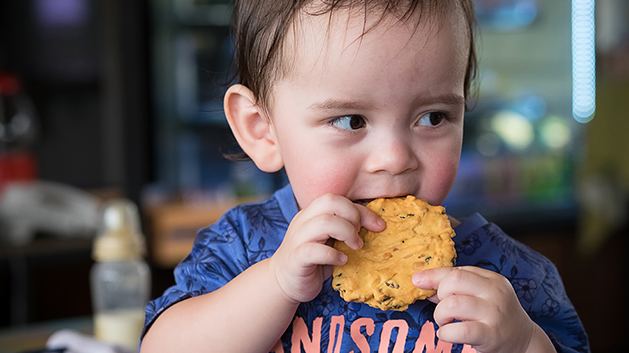Foods to Avoid for Babies and Young Children

What types of Food to avoid for babies and young children?
Healthy eating is all about balance. There is no need to add salt or sugar to your child’s food. There are some foods and drinks that are not safe for your child to eat and others that are not as healthy choices as other foods. Like the rest of the family, your baby needs to eat a variety of foods (1, 2).
Below are some types of foods and drinks to avoid for children to prevent several health complications:
Salt: Since salt has negative effect on your babies’ health, it should not be over consumed by your babies. Adding stock cubes or gravy, rich in salt, to baby’s food or cooking water, is a common misconception that mothers have. Remember this when you’re cooking for the family if you plan to give the same food to your baby. Examples of salty foods that should be avoided: bacon, sausages, chips with added salt, crackers, crisps, junk food.
Sugar: Over consumption of sugar by babies may lead to health complications like obesity, diabetes, and tooth decay. By avoiding sugary snacks and drinks, you’ll help prevent those health complications. Examples of sugary foods that should be avoided: fruit juice, candy, ice cream, cakes.
Saturated fat: Generally, children respond like adults to higher intakes of saturated fat with variable increase in “bad” cholesterol in the blood. Limit the consumption of foods that are high in saturated fat: butter, cheese, fatty meat. Checking the nutrition labels can help you choose foods that are lower in saturated fat (3).
Honey: Before 12 months, honey consumption may cause a serious type of food poisoning called botulism, caused by a bacteria producing toxins in babies’ intestines. Before your child is 12 months old, do not give him/her any foods containing honey, including yogurt with honey and cereals or crackers with honey. Honey is a sugar, so avoiding it will also help prevent tooth decay.
Whole nuts and peanuts: Whole nuts and peanuts should not be given to children under 5 years old, as they can choke on them. You can give your baby nuts and peanuts from around 6 months old, as long as they’re crushed, ground or a smooth nut or peanut butter.If there’s a history of food allergies or other allergies in your family, talk to your doctor before introducing nuts and peanuts.
Unpasteurized drink or food: are harmful to your child because they might carry a bacteria that can cause severe diarrhea. Avoid giving your child unpasteurized drinks or foods such as yogurt, milk, or cheese. But these unpasteurized food and drinks can be used as part of a cooked recipe as listeria is killed by cooking.
Cow’s Milk: may increase the risk of intestinal bleeding in case introduced before 1 year old. It contains too many proteins and minerals for your babies’ kidneys to handle. It is not have the adequate amount of nutrients your baby needs.
If young children learn to like healthful foods and to make wise eating choices early on, they will be more likely to continue healthy eating behavior in adulthood and consequently to become healthier adults. Healthy eating, combined with adequate exercise, can protect young children from developing obesity and health complications (3).
By Dr. Aref Ramadan,
M.D Pediatrician
References:
1. Foods and Drinks to Avoid or Limit. Center for Disease Control and Prevention July 2021.
2. Foods to avoid giving babies and young children. NHS England 2018
3. Oswalt A. et al. Early Childhood Food and Nutrition Conclusion. Child Development & Parenting: Early
Featured Articles

Monitor your child’s growth
Compare your child’s weight with other children their age
Need advice?
Our team of experts is ready to answer your questions and support you on your journey from pregnancy to toddler hood. For more information and relevant advice, please contact us between 9am-5pm from Sunday to Thursday.




